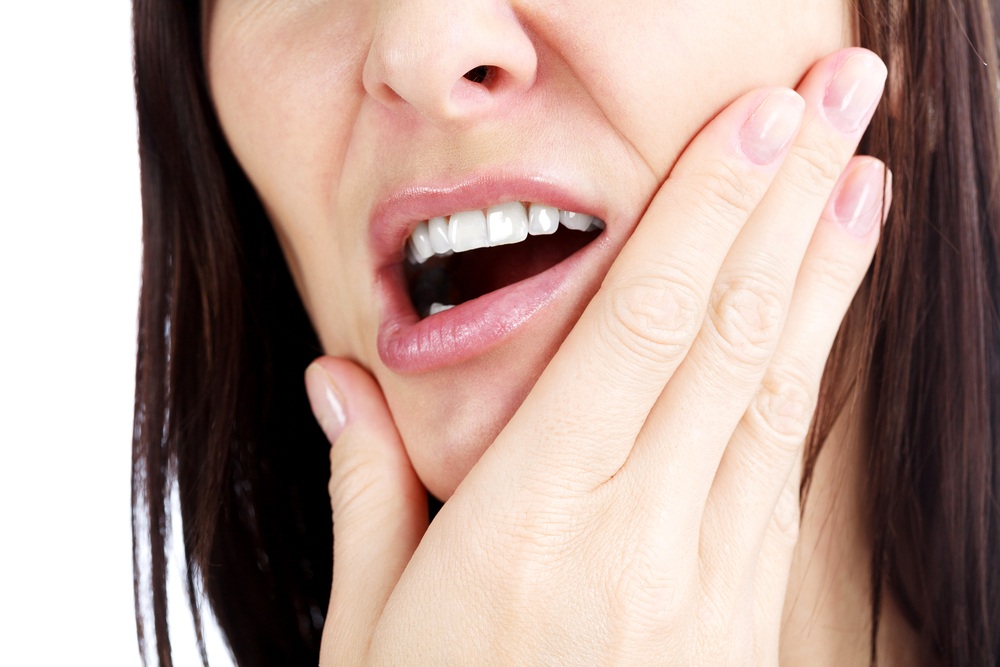Jaw pain is a common issue that affects millions of people in the U.S. It can be a minor annoyance or a symptom of a serious medical condition. Understanding the various causes and medical treatments for jaw pain can help you find relief and prevent further issues. At Hamilton Dental Associates, we are dedicated to helping our patients address their concerns about jaw pain and improve their overall oral health.
While many factors can cause pain in the mouth or jaw areas, temporomandibular joint disorder, or TMD, is one of the most common causes of jaw pain. This condition can affect your temporomandibular joint (TMJ), which connects the lower jaw to the skull. Could a temporomandibular disorder be the source of your irritating jaw pain issue? Read on to find out everything you need to know about the role of temporomandibular joints, relief strategies to reduce or prevent jaw pain, and healthcare-provider-approved treatment options.
What Exactly is a TMD?
Temporomandibular joint disorder, commonly referred to as TMD, is a condition that affects the jaw muscles, temporomandibular joints, and nerves associated with chronic facial pain. This disorder can cause significant discomfort and impact your ability to perform everyday activities like eating and speaking. Understanding TMD is crucial for identifying its symptoms and seeking appropriate treatment from our Hamilton and Ewing dental associates.
Your temporomandibular joint (TMJ) is a complex hinge that connects your lower jaw (mandible) to your skull, specifically the temporal bones in front of each ear. This jaw joint allows you to open and close your mouth while enabling the sliding movements necessary for chewing, speaking, and yawning. The TMJ is one of the most used and complex joints in the body, capable of both rotational and translational movements.
Factors That May Cause Jaw Pain
The exact cause of TMD is often difficult to determine, as it can result from a combination of factors. Some common causes of TMD include:
Jaw Injury
A direct injury to the jaw, such as a broken or dislocated jaw, can lead to TMD. Trauma can damage the joint or the surrounding muscles and ligaments. A broken bone is a medical emergency, so if you suspect a broken or dislocated jawbone, talk to a healthcare provider immediately.
Arthritis
Arthritis, particularly osteoarthritis and rheumatoid arthritis, may affect your temporomandibular joint, causing jaw pain, inflammation, and dysfunction.
Teeth Grinding and Clenching
Bruxism, or clenching and grinding your teeth, can put excessive strain on the TMJ and the jaw muscles, leading to TMD. Your dental treatment team can prescribe a mouthguard to protect your teeth at night.
Stress and Anxiety
Stress and anxiety can cause muscle tension and lead to habits that may cause jaw pain, like teeth grinding.
Poor Posture
Poor posture, particularly of the neck and shoulders, can affect the alignment of the TMJ and lead to TMD.
Genetic Predisposition
A family history of TMD or other joint disorders may increase the risk of developing the condition.
Gum Disease
Is your jaw pain accompanied by suspiciously loose-feeling teeth? Gum disease, also called periodontal disease, can lead to TMD symptoms. Bacterial infections in the upper or lower jaw can spread to the bone, causing severe pain.
What are Some TMD/TMJ Symptoms?
It can be difficult to differentiate between pain caused by TMD and other types of pain. Infections like sinitus lockjaw can affect your jaw in similar ways to TMD. However, there are a few tell-tale signs you can use to rule out a secondary condition. Some of the most common symptoms associated with a TMD include:
- Pain in or around the ear
- Pain when chewing
- Tender jaw muscles
- Painful clicking or popping while opening or closing your jaw
- Difficulty opening or closing your mouth
- Throbbing pain when opening your mouth wide
- Headaches, neck pain, or facial pain
What does YOUR jaw pain feel like? In its earliest stages, TMD pain may be mild or easy to ignore, but it may be a symptom of a serious problem. If you currently experience any of these issues, tell your dentist ASAP so they can begin looking at TMDs/TMJs as a possible diagnosis.
What Are My Treatment Options?
While identifying a TMD/TMJ can prove challenging, our dental healthcare providers treat jaw pain by helping with symptom reduction. Some of the treatments you can do on your own to alleviate or prevent jaw pain include:
- Eating soft foods
- Limiting wide jaw movements
- Avoiding biting down on anything hard
- Applying a moist and warm compress
- Taking over-the-counter nonsteroidal anti-inflammatory medications (NSAIDs) such as aspirin or ibuprofen
If you’re still struggling with persistent jaw pain issues, then your dentist may prescribe dedicated physical therapy exercises to strengthen your jaw muscles, muscle relaxants or other prescription medications designed to treat specific symptoms, or a nightguard to decrease the amount of tooth grinding or clenching that happens while you sleep. Consulting your dentist is the best way to determine your treatment plan and address your jaw pain.
(Remember, while our dental experts can handle all types of TMD, if you suspect a more serious issue, including a broken or dislocated jaw, your jaw pain is combined with chest pain, or you’re dealing with extremely severe jaw pain that lasts for multiple days at a time, we recommend that you call a healthcare provider for emergency treatment.)
Get Help for Jaw Pain
Understanding the common causes of jaw pain and seeking appropriate treatment can help you find relief and prevent further complications. At Hamilton Dental Associates, our team of experienced professionals is here to help you address your jaw pain and improve your overall oral health. Whether you are concerned about jaw pain, suspect gum disease, or bothered by a toothache, don’t wait — schedule an appointment with us today for the best in Hamilton orthodontics, general dentistry, pediatric care, and more. We’re looking forward to making you smile!







